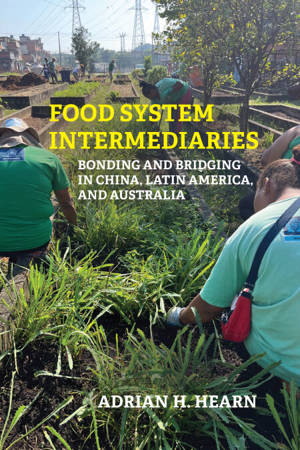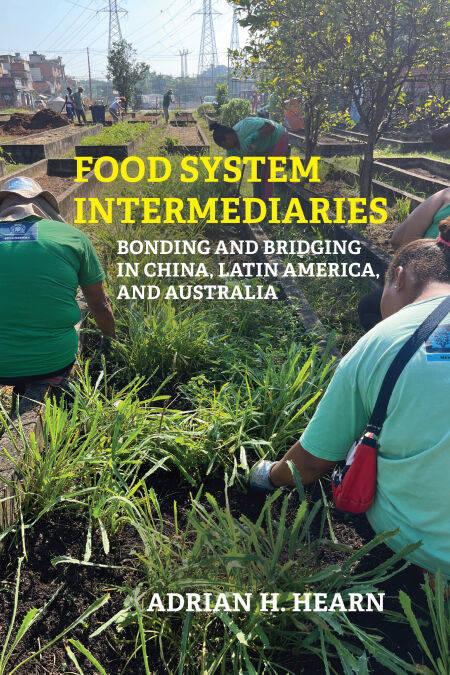
- Afhalen na 1 uur in een winkel met voorraad
- Gratis thuislevering in België vanaf € 30
- Ruim aanbod met 7 miljoen producten
- Afhalen na 1 uur in een winkel met voorraad
- Gratis thuislevering in België vanaf € 30
- Ruim aanbod met 7 miljoen producten
Zoeken
Food System Intermediaries E-BOOK
Bonding and Bridging in China, Latin America, and Australia
Adrian Hearn
€ 64,07
+ 64 punten
Omschrijving
A cutting-edge analysis of food systems sustainability, including COVID’s impact on current food systems, in up-to-date case studies of community farms in Australia, Brazil, Cuba, and China.
What does expanding agribusiness—and community resistance to it—reveal about the influence of global trends on local livelihoods, and conversely, the influence of food traditions on international networks? In Food System Intermediaries, anthropologist Adrian Hearn examines how small farmers and their allies are defending their lands and livelihoods from expanding commodity plantations. At the heart of these encounters are food system intermediaries: people who carefully articulate food traditions to forge consensus among otherwise disconnected community producers, local governments, and urban customers. Their efforts to bring these groups together must contend with alternative portrayals of food circulated by more powerful corporate and government actors.
The book offers case studies of urban farms in Melbourne, São Paulo, Rio de Janeiro, Beijing, and Havana to demonstrate how intermediaries are building alliances to cultivate more sustainable food systems, particularly as China’s impact on global agriculture deepens.
What does expanding agribusiness—and community resistance to it—reveal about the influence of global trends on local livelihoods, and conversely, the influence of food traditions on international networks? In Food System Intermediaries, anthropologist Adrian Hearn examines how small farmers and their allies are defending their lands and livelihoods from expanding commodity plantations. At the heart of these encounters are food system intermediaries: people who carefully articulate food traditions to forge consensus among otherwise disconnected community producers, local governments, and urban customers. Their efforts to bring these groups together must contend with alternative portrayals of food circulated by more powerful corporate and government actors.
The book offers case studies of urban farms in Melbourne, São Paulo, Rio de Janeiro, Beijing, and Havana to demonstrate how intermediaries are building alliances to cultivate more sustainable food systems, particularly as China’s impact on global agriculture deepens.
Specificaties
Betrokkenen
- Auteur(s):
- Uitgeverij:
Inhoud
- Aantal bladzijden:
- 248
- Taal:
- Engels
- Reeks:
Eigenschappen
- Productcode (EAN):
- 9780262384919
- Verschijningsdatum:
- 20/10/2025
- Uitvoering:
- E-book
- Beveiligd met:
- Adobe DRM
- Formaat:
- ePub

Alleen bij Standaard Boekhandel
+ 64 punten op je klantenkaart van Standaard Boekhandel
Beoordelingen
We publiceren alleen reviews die voldoen aan de voorwaarden voor reviews. Bekijk onze voorwaarden voor reviews.








